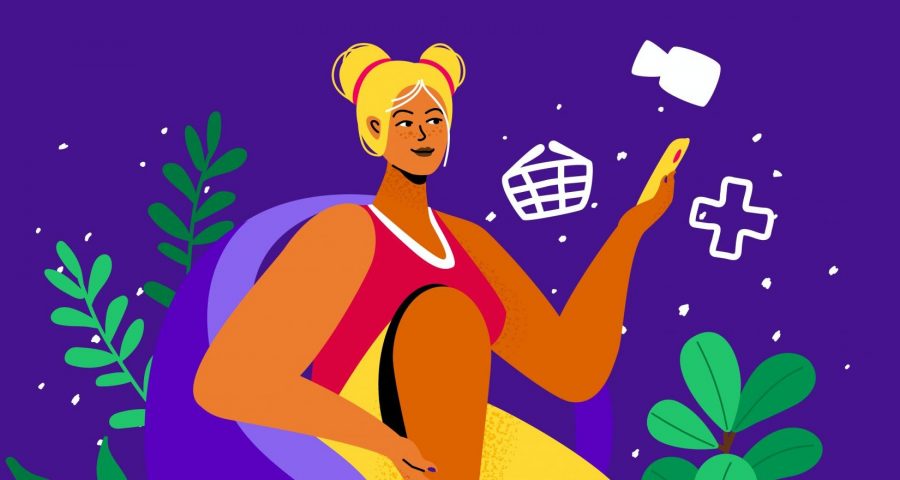Since banning weight loss ads last year, new research by Pinterest claims that searches for the subject have dropped dramatically.
You may recall that last year, Pinterest announced it was taking action against dubious weight-loss ads on the platform. It also planned to start clamping down on body-shaming language after a OnePoll study found that 80% of Gen Z felt the pressure to get “summer body-ready”.
At the time, it seemed like a huge move – particularly as Pinterest had partnered with the National Eating Disorders Association in the US to get the ball rolling. But a quick dig showed that there was plenty of weight loss content still on the site, with loads of weight loss challenges and body transformations.
You may also like
Pinterest bans weight loss adverts in a bid to promote body neutrality
However, new research from Pinterest has actually found that since putting those measures in place, searches related to ‘weight loss’ have fallen by 20% on the platform. And in an Opinium study of 2,000 adults this month, over half of respondents said they felt less pressure this year to be ‘summer body ready’ compared to last, with people saying they’re more concerned with being healthy than fitting a certain size.
Perhaps even more interestingly, there’s been a huge surge in more positive content, with a 50% increase in ‘how to change your mindset’, 36% increase in ‘loving myself’ and 65 times the searches for ‘quick and healthy meals’.
Pinterest ban versus world events – which has had the most impact?
Of course, there could be a number of reasons why people are feeling less pressure this year. After two years of lockdown restrictions, last year’s poor weather and the current cost of living crisis, it’s perfectly plausible that these restrictive beauty standards aren’t cutting through as deeply as they used to.
Kate* tells Stylist that she feels less pressured to look a certain way because of wider societal issues: “The pandemic made me reassess my relationship with my body and food entirely. I made huge progress in my eating disorder recovery mostly because I realised life was too short and there really were more important things in life/health than my dress size.
“That has continued as life got back to ‘normal’ – different things take priority especially when money is tighter.”
Meanwhile Emily explains that she had to shield during the pandemic, which “was really awful and depressing”. “Now that we’re out of lockdown, I’m trying to do as many joyful things as I can, including swimming. I have a history of eating disorders so I always felt self-conscious in a bikini, but after the time we’ve all had, the joy of being outside again and doing things I love has made my body image worries seem really irrelevant.”

”When we implemented our weight loss ad ban a year ago, our hope was to continue building our platform as a safe and welcoming environment where all Pinners feel free to be who they are regardless of body shape or size,” explains Sarah Bromma, head of policy at Pinterest.
“Now a year later, we are seeing a positive response from users, demonstrating the true impact such a policy can have on online behaviours and perceptions. We will continue to support and protect our users from harmful information or content that does not align with our mission and values.”
Weight loss content still exists on Pinterest
It’s worth saying that you can search ‘weight loss’ on the platform and find pins for ‘flat stomach workout’, ‘brilliant ways to get skinny in a week’ and ‘how I lost 50 pounds in 5 months without exercise’. That’s not to say that Pinterest isn’t right – these are user-generated posts rather than ads – but it doesn’t seem like the ban on weight loss language or imagery is having much effect.
It’s great that people aren’t searching for this content as much but weight loss tags are always going to attract charlatans promoting belly-melting apple cider vinegar drinks and fake news ‘transformations’. A far bolder step would just be to outright ban them once and for all.
If you’re struggling with disordered eating, check out the Beat website.
Images: Getty
Source: Read Full Article
